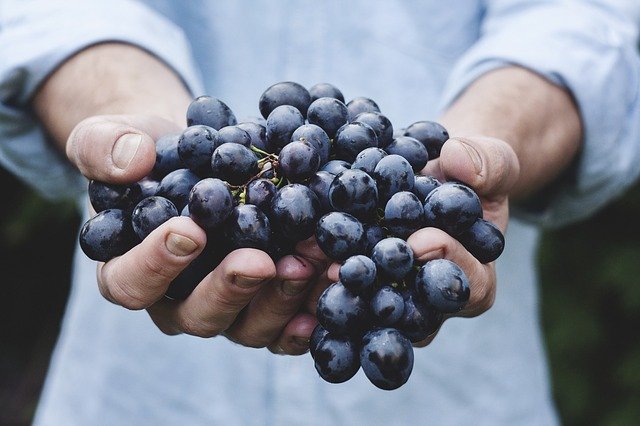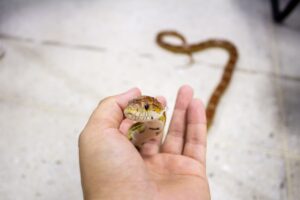Grapes are nutritious, inexpensive, and of course, delicious fruits. We, humans, adore them, which often prompts the question, can we feed them to our pets?
Even so, grapes are usually toxic to several animals like cats and dogs. And to some extent, they can be harmful to hamsters as well. Well, the good news is that Hamsters, just like humans, can eat grapes. Your furry friend will only appreciate grapes if given in the right amount.
In other words, treating your pet to a grape now and then can be nutritious. Too much grape, however, can upset the stomach and even bring about diarrhoea. It would be best if you, therefore, used this treat occasionally.
How can you feed grapes to your hamster and what are the benefits as well as the risks of doing so?
Are Grapes Good for Hamsters?
Let’s put this better: Grapes include various nutrients, but you shouldn’t have them in your hamster’s daily diet. They make a tasty treat only when offered in minor quantities.
Most hamsters like grapes because they tend to enjoy sweet foods. So, when trying to avoid preservatives, additives and corn syrup, a grape special treat is a fantastic choice.
How often should your hamster eat grapes?
Without a doubt, grapes are heavy in sugar. And for that reason, you shouldn’t let your hamster have them too often.
At least once or twice a week is sufficient and shouldn’t be served together with other sweet fruits unless you reduce all fruit amounts and serve no more than a teaspoon of fruit at a time.
The Right Diet
A hamster eats a wide variety of foods, unlike some pets who have very specialised diets. You should also know that hamsters are omnivorous pets. As such, they not only consume plants but animal protein as well.
The natural diet of a hamster diet typically includes things such as worms and crickets. For that reason, most hamster owners prefer to feed them on treats like dried mealworms.
But don’t fret if you don’t like feeding insects to your hamsters. Even the hamster pellets you buy for feeding your furry friend are nutrient-dense. Be sure to check the label, though, to ensure you provide the proper amount of food to your hamster every day.
Below are the vital foods to feed your hamster for a well-rounded diet:
- Fresh Timothy Hay: Give your hamster an endless supply of fresh hay so he can indulge in natural stress-relieving habits. Your hamster will munch on the forage, which you can also blend with their hamster bedding to make nests and tunnels.
- Unlimited fresh water supply: Don’t forget to rinse and replenish your hamster’s watering bottle at least once every day.
- A small number of fresh vegetables and fruit: Use tiny amounts every day or every other day.
- A small amount of birdseed: A teaspoon each week is sufficient.
- Chewable treats: The teeth of your hamster are continually growing. Your pet needs to gnaw on things such as coconut shell, unbleached loofah, hay cubes, or untreated softwood sticks every day. There are many different hamster toys to pick from.
If you were to ask your hamster, they would most likely tell you that diversity is the spice of life! You should also normalise giving your furry buddy fresh treats and food because stale or rotten things are unhealthy.
Then again, only offer your hammy as many fresh treats or grapes as they can take at one time. After they become full, they may lose interest in their fresh foods. In such a case, consider removing any surplus immediately so that it does not become hoarded.
Also, check if your hamster puts their fresh treats in their pantry. If they do, there’s a high chance that the food will develop moulds or even rot, making your pet very ill.
How much grape should you feed your hammy?
The pet’s breed determines the number of grapes you give your hamster. Syrian hamsters, for instance, are the giant breed and hence can consume more grapes. Dwarfs and Robos, on the other hand, don’t take as much.
You should also note that hamsters who feed on too many grapes might suffer from various issues. It would help if you hence gave them a single sugary treat at a time.
The goal is to minimise the sugar intake in your hamster’s diet. For example, assuming you are giving your hamster the recommended quantity of grapes and then the recommended amount of banana, the excess sugar may be harmful over time.
Feeding Grapes to your Hamster
When introducing any new treats, including grapes, do so in tiny amounts and slowly to your hammy. And in the event your furry friend displays any signs of diarrhoea, loose stool, decreased appetite or digestive discomfort, quit offering them grapes at once and call your local vet.
Benefits of Grapes
Generally, the correct quantity of grapes can improve your hamster’s health. Below are some of the specific benefits that grapes deliver.
- Grapes are high in antioxidants. As such, they offer protection against the ravages of ageing.
- Grapes are high in vitamin C. This eliminates pollutants from your hamster’s system, promotes clotting and boosts their general health.
- Grapes are high in dietary fibre. They are hence very beneficial to your hamster’s digestive tract.
- Grapes include potassium, which aids your hamster’s blood pressure control.
Risks of too many grapes
Although grapes are healthy, they can still cause problems if your hamster overeats them. Here’s why you should encourage small quantities:
- Grapes have high sugar content. Excessive amounts are toxic to hamsters since they are vulnerable to obesity and diabetes.
- Overfeeding your hamster grapes might also cause gastric problems. The reason being, hamsters, cannot quickly digest the fruit and may suffer from diarrhoea.
- Pesticides may also still be clinging to the skin of unwashed grapes. This can be harmful to your little furry friend.
Conclusion
Finally, we now know that hamsters do eat grapes. They contain antioxidants, dietary fibres and potassium. So, provided your hammy takes reasonable amounts, grapes can be a healthy treat.
However, don’t let your hamster eat the skin and seeds to avoid the risk of diarrhoea or choking. It’s also wise to consult with your animal vet before introducing your hamster to new treats.




